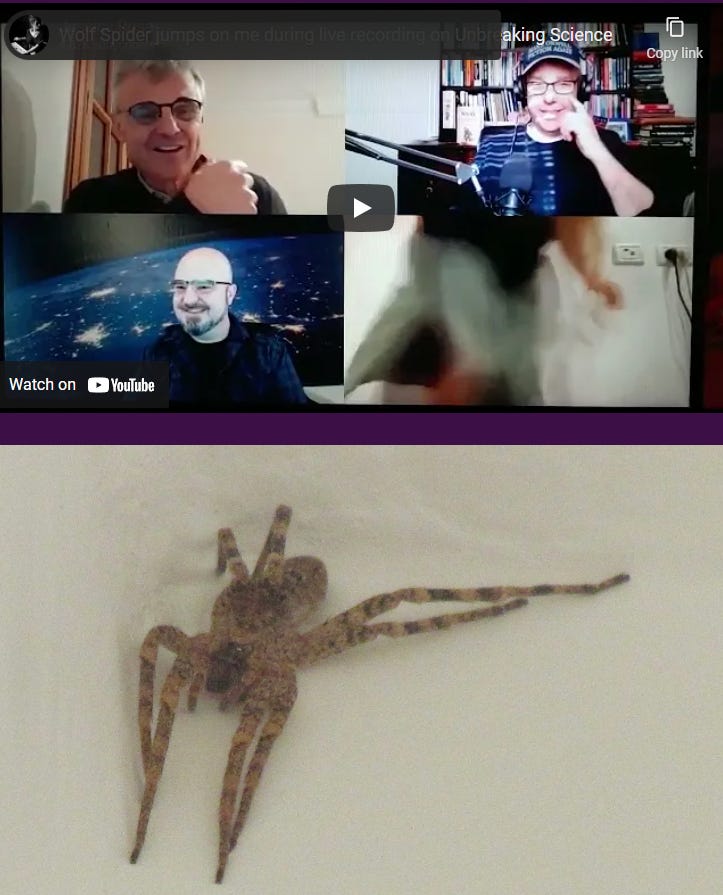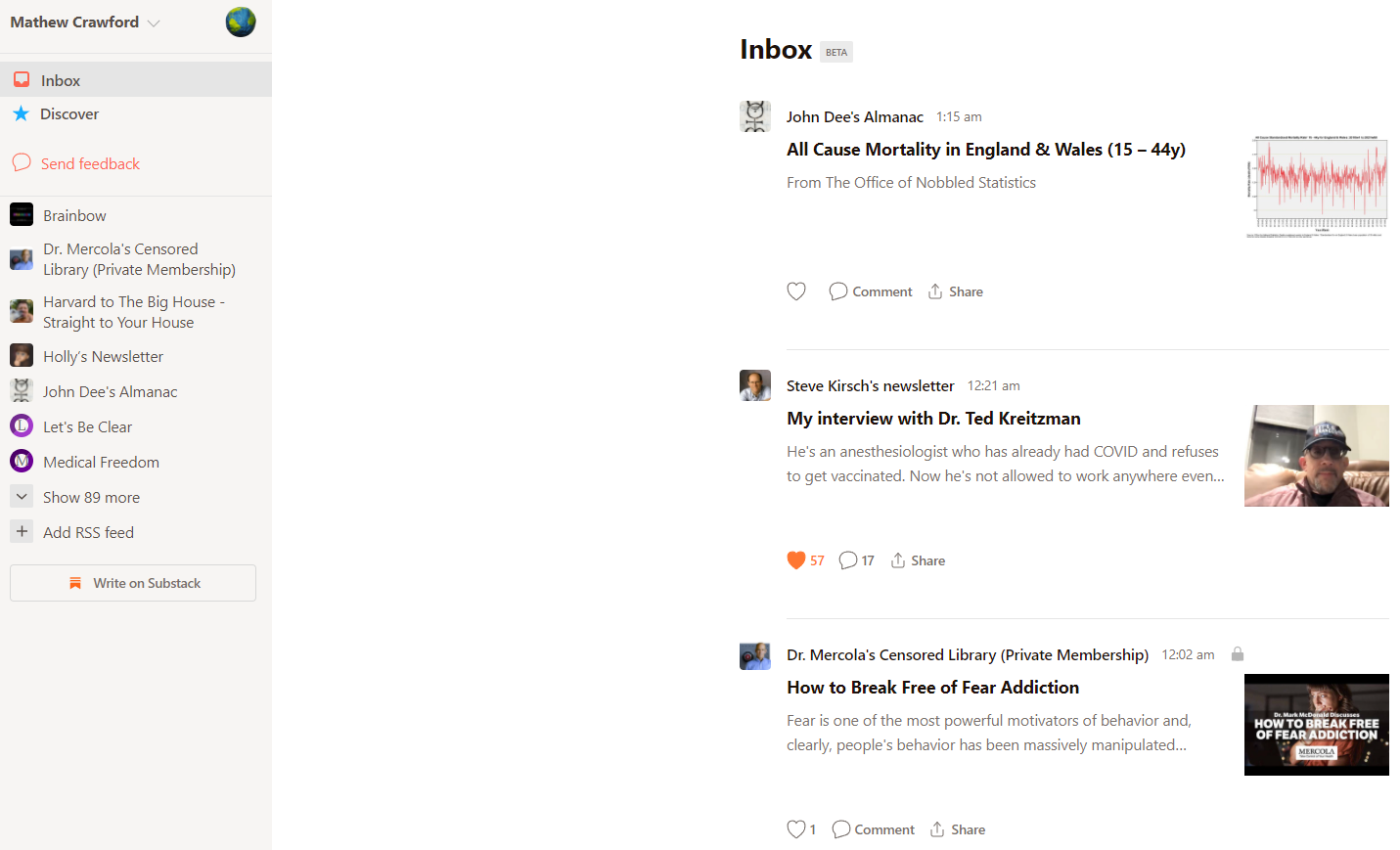
“Le Cardinal's conclusion surprised him. L'Arche produced a collective intelligence that was greater than the sum of its parts; interaction between the able and the disabled produced points of view that were more sophisticated than either group reported on its own.” -Ian Brown, The Boy in the Moon: A Father's Journey to Understand His Extraordinary Son
Citizen science or crowd-sourced science is not a new idea, but perhaps needed a new age in which to really get started. The pandemic provided just such a moment.
And perhaps it needs redefinition. Is participation of non-professional scientists in science not still science? Sure, it's often harder, but many valuable experiments and analysis of experiments can take place with professional guidance, if not entirely outside of the purview of professionals. Need professional scientists remain entirely cordoned off from the rest of society in pursuit of answers to difficult questions?
Did anyone really think that the world's most centralized government that has taken over the machinery of scientific institutions through dependent funding, intellectual property deals, and running corporate public relations departments masquerading as public health was really going to lead the way?
I like to remind friends and students that the institutions of Science were built by scientists without institutions. And the Wright Brothers lost more teeth playing ice hockey (several) than they had high school or college diplomas between them (none). Why not build some new institutions?
Why not build a new one on Substack?
The (Sub)Stackers
A few hours ago I was honored to be among the first circle of "Stackers" invited by Dr. Jack, at Unbreaking Science along with Geert Vanden Bossche and Jessica Rose, for a roundtable discussion of what we've been up to here in the Substack world.
You'll at least want to watch for the moment when Jessica gets assaulted by a giant spider.
Clearly a lab leak of some sort, but you won't hear that from mainstream science media.
I have grown to love the several hours a week I'm spending with biologists and other scientists during the pandemic. I learn tremendous amounts in combination with listening to them and reading papers in a field where my knowledge was previously superficial, but has grown more and more functional.
At the end of the discussion, we were asked for closing thoughts, and the thought of "citizen science" or "decentralized science" crossed my mind. When I started writing here nearly 11 months ago, I was one of just a few people writing about pandemic-related statistics, medicine, and science. Now there are dozens of us. This is a textbook example of an emergent phenomenon that occurs at the point at which people come to realize the need for a solution and get to work. Click on my profile to see how many people I'm following, or check out this growing page of recommendations (please join Operation Uplift and add your own to the campfire.wiki list).
Also, if you don't yet know about the Substack Reader…it becomes your friend long before you hit 40+ subscription buttons as I have. Note the "Add RSS feed" feature we all lost when Google pulled that rug years ago. Oh, look who's trying to stay relevant!
Operation Uplift's Campfire.wiki
Speaking of Operation Uplift…this is also citizen science (coming soon). OU is otherwise decentralized intelligence in other ways. Just a few hours ago I found out about a project being run by members that I wasn't even aware of, even though I founded the group. The Campfire.wiki is growing to document at levels of organization that have rarely been seen in science, more like www.c19early.com in some ways, but with a broader range of vectors for future trajectory. It will also be a place where we can document the kinds of collections of information that could be used in articles like The Curious Calm Before the Storm, which was one of my first articles here (and relies on information that had to be aggregated and organized over time), and other collections of information that could one day help a legal team prosecute (yes, that is one objective) by understanding the big picture and where to look for evidence.
Document everything. Spread organized knowledge.
We will win.
Steve Kirsch, Citizen Science Leader
Don't tell a man who has funded successful medicine to the tune of millions of dollars that he can't participate because he's an engineer. He is nothing if not resourceful. He,
Funded trials that demonstrated that fluvoxamine helps COVID-19 patients,
Ran surveys to see if his and my estimates on vaccine-induced mortality were correct,
Organized a crowd to study airline pilot mortality,
Organized doctors and other healthcare workers to speak out, freely and in unison, for all the reasons that exercise of free speech and will is valuable, (if you are a healthcare worker, please sign up)
Is reaching out for insurance data to help unravel the veil of information threatening so many lives.
Each of these activities is more or less precise or accurate as a tool for understanding the world, but that is the judgment of the observer in the methodological scientific process!
All the Other Leaders Makes a Crowd
I know Steve well enough to highlight his activities, but I don't mean to diminish the other many participants. They're incredible. Robert Malone, Geert Vanden Bossche, Jessica Rose, Dr. Jack, Pierre Kory, Heather Heying, Joel Smalley, and numerous others. Many of them began writing at Substack just recently. And the subscription revenues each receives frees them of some or all of the financial burdens associated with their decisions to work independently of any system that could otherwise withhold their livelihoods or pressure them with $40 million horse heads in their beds.
Substack does not have to be the medium, but they've done a great job building this platform, so this is our turf for the time being. And yours. We are achieving critical mass. The world is your university. You are the administrators, the patrons, and the board of directors. So, thank you.













Thank you for the Campfire Wiki and the Stacker Reader info! Wow, very cool and extremely helpful. Stack seems to now be where I get most of my in depth information. Blessings to all.
awesome write up!